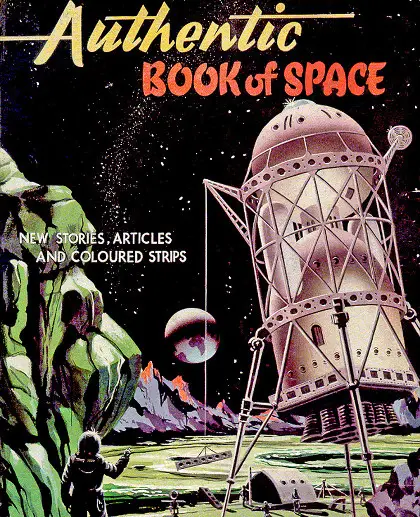Jonathan Dodd‘s latest column. Guest opinion articles do not necessarily reflect the views of the publication. Ed
Back in the earlier decades of the second half of the last century I became a temporary sci-fi junkie. From the moment I learned to read I had at least one book on the go at any one time. This has been a lifetime habit so strong I almost never go anywhere unless I have my book with me.
I remember I started reading everything I could find at school or at home, and then in the local library, and the joy of being able to start discriminating – between easy books and hard ones, and those which could show me new things as opposed to stuff I already knew – was so immensely liberating that I never got over it.
So, naturally, fiction became my first love
I suppose you might think that I would be most interested in non-fiction books, but I found as time went by that the two things which inspired me most in books would be readability and ideas. So, naturally, fiction became my first love.

I don’t mind reading my way through a history tome sometimes, or a reference book in small chunks, but there’s a huge difference between someone who writes because they have information to impart and someone who loves writing first and foremost. It’s like the difference between a lively conversation and a Party Political Broadcast. I find it hard to digest and retain information written by an expert unless he is also a good writer.
A mysterious adult called Bill Smuggs
The first serious reading I remember was a series of eight books by Enid Blyton, each with the word ‘Adventure’ in the title, as in the Castle of Adventure. There was a cast that didn’t vary, including children on holiday in an exotic location, a white cockatoo called Kiki and a mysterious adult called Bill Smuggs. And, of course, a nefarious plot by a criminal gang that had to be foiled. I loved these books, and I wish I still had my original hardback copies with their paper covers.

After that phase I read a lot of the classic children’s books, until I encountered my first marathon read – the Lord of the Rings, which I read far too early. After that someone recommended Ian Fleming, and I was off and running into thriller/spy story territory.
How could I possibly resist that?
I was good at English at school. Unlike my science teachers (sadly), my English teachers were all excellent and enthusiastic. How can anyone live with themselves if they are a teacher without enthusiasm? I was given a lot of excellent books to read and write essays about, and every week I had to write down a list of the books I had read. These people wanted me to read, and I had no problem with that.
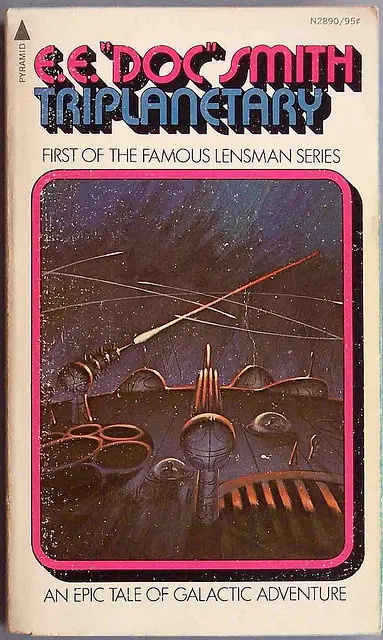
After school kept up my reading, and one day I found a book called ‘Triplanetary’, by E E ‘Doc’ Smith, the start of a series of mad early Space Sage novels. How could I possibly resist that? And so began my love affair with Science Fiction. For at least five years I read nothing but Robert Heinlein, Arthur C. Clarke, Larry Niven and Ursula Le Guin. I gorged myself on everything I could find that took me to far-off places and threw weird and wonderful ideas at me. It was great.
The third or fourth Dune book
I’m still not sure what happened, but there came a moment when I started to crave a different diet. I have a sneaking feeling it was the third or fourth Dune book. But along came the more recent thriller writers like Jack Higgins and Alistair McLean and Wilbur Smith. By the time I reached Robert Ludlum I had the same problem. There were far too many Bourne books.
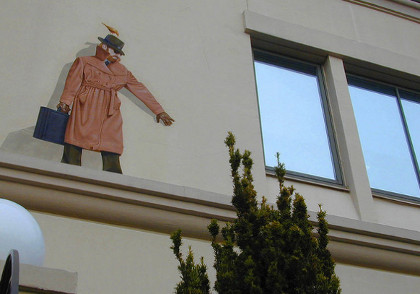
So I calmed down a bit, and now my reading is still mostly fiction but it’s more eclectic. I still have my favourites, but now I range over a wide area of authors and genres. A couple of years ago I started keeping a list of what I was reading again, as I did when I was at school.
Just a minisec
All this is very satisfying, but I do still miss some of the ideas I picked up on in the early days of my sci-fi madness. I was reminded of this when I got my new phone. I once read a book by Arthur Clarke called Imperial Earth. It was published in 1976, and it described a world 300 years ahead in which everyone has a small machine called a ‘minisec’, which works remarkably like a modern mobile phone. The book describes how each child is given one as early as possible, and it becomes his or her companion through life.
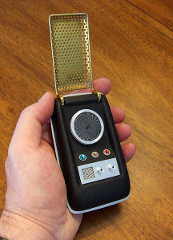
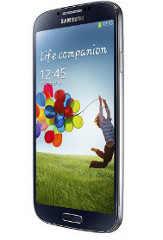
My new phone – only 30 years later – has on its home page the words – ‘Life Companion’. Either those clever people at Samsung are Arthur C Clarke fans or he was remarkably prescient.
Perhaps it’s time to take a look through those Science Fiction shelves in Waterstones again. I might have missed something.
If you have been, thank you for reading this.
Image: x-ray_delta_one under CC BY 2.0
Image: Textbook Rebellion under CC BY 2.0
Image: JJ Harrison under CC BY 2.0
Image: cdrummbks under CC BY 2.0
Image: candiedwomanire under CC BY 2.0
Image: David B Splading under CC BY 2.0
Image: Samsung Tomorrow under CC BY 2.0

